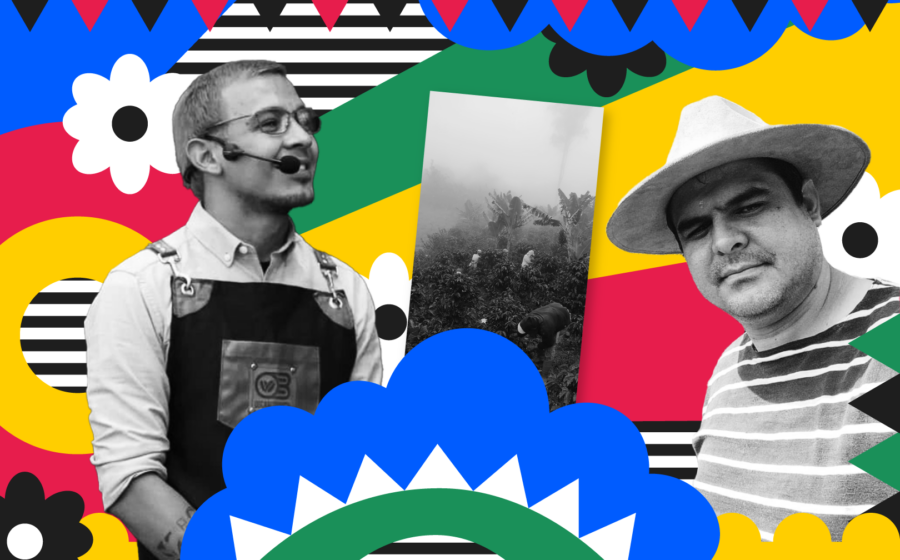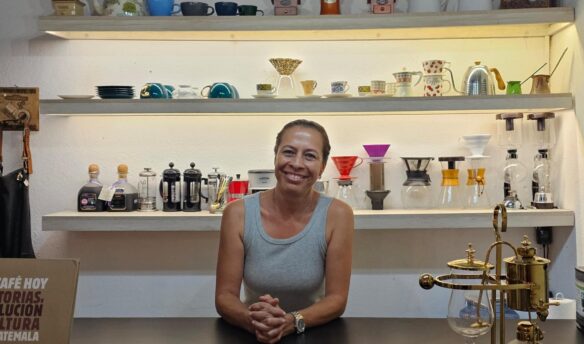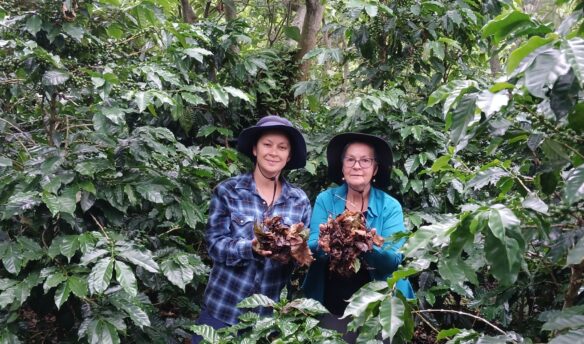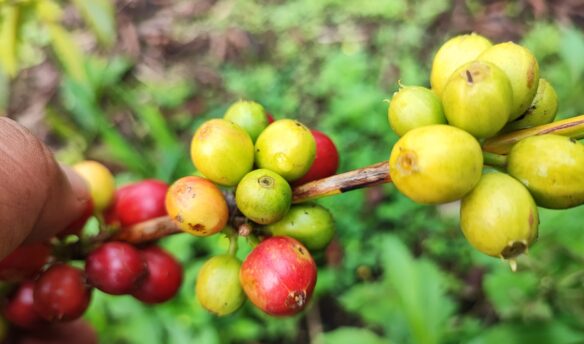Venezuela was once a major player in the coffee industry, consistently ranking among the world’s top exporters. According to the Historical Dictionary of Venezuelan History, Venezuela started producing coffee as part of the Spanish Empire, and it grew its production considerably during the 18th century when Spain decided to compete against France in coffee production and commercialization.
After breaking free from the Spanish Empire in 1821, Venezuelan coffee production grew rapidly. During the 1830s, Venezuela produced an average of 6,320 tons of coffee yearly, and production kept increasing until it peaked in 1919, exporting 82,382 tons that year. By that point, Venezuela was among the top three global coffee producers.
Then, things shifted in the 1920s: poor infrastructure, low funding, and social unrest all contributed to the decline of coffee production. Business interests also shifted as the world—and, in turn, Venezuela—became increasingly more focused on oil production and the agroindustrial sector.
By the 1950s, Venezuela’s coffee production was meager. This phenomenon isn’t unique to Venezuela, and many oil-producing countries have struggled to take advantage of oil exports to grow their economies. Juan Pablo Pérez Alfonzo, Venezuela’s Oil Minister in the 1960s, called oil the “devil’s excrement,” attempting to illuminate the destructive nature of oil dependence.
But now, Venezuela is currently undergoing a coffee renaissance. A growing community of specialty coffee producers, roasters, baristas, and brands are focused on creating higher quality standards and repositioning Venezuela prominently on the world map of coffee production.
Quality Over Quantity
“If you have been outside of Venezuela, you know that Venezuelan coffee practically doesn’t exist,” says Óscar González, the 2023 Venezuelan Barista Champion. He’s referring to how difficult it is to find Venezuelan coffee in specialty shops despite the country being bordered by two widely popular coffee-producing countries, Colombia and Brazil.
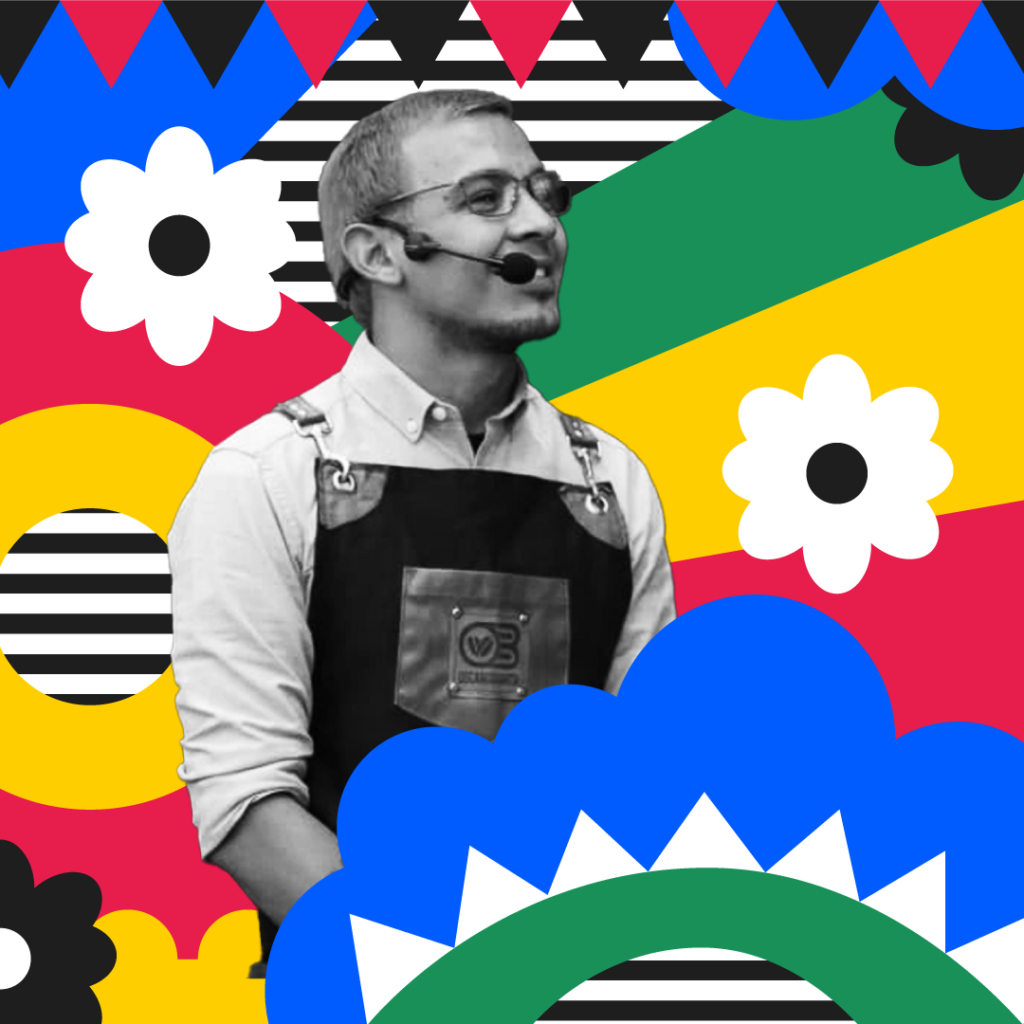
But things weren’t always this way. In descriptors for national coffee events, many vendors and media outlets refer to Venezuela’s “Golden Age,” a time in the 19th and early 20th century when coffee production was high, and Venezuela enjoyed a prominent role on the world coffee stage. In particular, coffee was seen as essential to the country’s recovery from the Venezuelan War of Independence, fought between 1810-1823.
But after Venezuela’s Golden Age came a sudden decline. Many are the reasons behind Venezuela’s coffee production decline over the past 100 years, but most agree that coffee’s decline had to do with the country’s growing reliance on oil and mining. The country quickly built its economy around the two industries, putting all other businesses outside the focus of government support and private funding. Millions of people working in agriculture migrated to cities and oil fields, looking for better job opportunities.
There is still so much to find out about coffee. We still don’t know everything about coffee. [But Venezuelan coffee] has so much to highlight and to give to coffee lovers. We’re creating an identity of Venezuelan coffee through the varieties we’re working with. And bringing this identity to reality, not in terms of quantity, but quality, into Venezuelan coffee. Victor Montilla
However, over the past decade, a handful of young Venezuelans have begun to change the tide, like González, who won the country’s second-even barista competition and is slated to represent Venezuela at the World Barista Championships in Busan, South Korea, in 2024. People like González hope Venezuelan coffee can return to prominence, but rather with a focus on quality versus export numbers. “Let it come back to existence,” he says. “But this time, not as a major exporter in volumes, but as a top exporter of coffee of the highest quality.”
Fueling Growth Through Education
When González started as a barista in 2011, it was hard to find training opportunities. “I didn’t have resources, things were increasingly difficult, and I didn’t know how to learn more,” says González. “At that moment, there was little information about specialty coffee, limited information about barista training, and about coffee itself.”
Perhaps the most essential key to increasing quality in coffee production has been education. Over the last decade, educational opportunities have flourished across the service sector: barista, culinary, patisserie, and bartender academies have popped up across Venezuela, offering training courses with international accreditation. Places that offer certifications from the Specialty Coffee Association (SCA) have grown substantially.

Just a decade ago, there were only a few players in the coffee education game in Venezuela. The Escuela Venezolana del Café and the Academia del Caffe were the only places that offered formal barista training with SCA certifications. Early pioneers of coffee education include Paramaconi Acosta and Pietro Carbone, who opened the first coffee training schools in Venezuela and have trained thousands of baristas over the years.
But in the past five years, many new education centers have opened: Provenzal Academy, led by Gustavo Paparoni, became the first SCA Premier Training Campus; Café y Ciencia, led by Darveris Rivas, became the first Q Venue in the country, meaning they are the first venue in Venezuela certified by the Coffee Quality Institute to train professional coffee sensory analysts or Q graders. Other spaces, like Savignano Café, expanded their offerings to provide training courses and SCA certifications for baristas, roasters, and sensory analysts.
Let [Venezuelan coffee] come back to existence. But this time, not as a major exporter in volumes, but as a top exporter of coffee of the highest quality. Óscar González, 2023 Venezuelan Barista Champion
When Víctor Montilla started growing coffee over a decade ago, he didn’t have access to formal training. He was based in Boconó, a city in the western part of Venezuela, and the few coffee training academies at the time were in big cities like Caracas and Maracaibo.
Still, education became a focal point in his coffee journey. “I started studying, testing, and buying from my cousins and neighbors because we didn’t have a single plant, despite belonging to the fourth generation of coffee producers in the family,” says Montilla. Like many families with a history of coffee growing, Victor’s father left coffee behind to pursue a more profitable career. Thus, when Montilla wanted to rebuild the family’s coffee business, he had no coffee to experiment with to learn post-harvest processing methods and quality controls. So during his first years in the coffee growing business, Montilla took education into his own hands—he points to Kim Ossenblok’s YouTube channel as one of his most important resources.
It’s impossible to know if increasing educational opportunities has directly fueled Venezuela’s coffee resurgence. Still, it’s clear production is growing and being led by a new generation of highly skilled and eager coffee workers. In 2021, Venezuela produced 3,188,880 quintals (about 350,000 tons) of coffee; in 2022, it produced 3,831,498 quintals, just a bit more than 380,000 tons of coffee.
What makes education so important is that people across Venezuela are beginning to learn the value of their coffee and how to target a specialty audience. Several coffee producers in Venezuela have found that focusing on quality makes their businesses more profitable and sustainable.
“Coffee, as it has been processed here, is washed coffee. But the price isn’t enough to cover those costs when you’re a small coffee producer,” says Montilla. “Therefore, we have been looking to create a new identity in coffee through specialty coffee, where pricing is different.”
In 2022, during a coffee producer’s meeting organized by Fausto Russo, Montilla explained the importance of selecting varieties that consider the unique attributes of Venezuelan terroir. Montilla emphasized that aroma and taste are key value drivers for farmers. “A coffee that offers aromatic notes of red fruits, brown sugar, citrus, and floral, with a balanced sweetness and acidity,” he says, “is a coffee that everyone can understand as something different and special.”
A Community and a Movement
Along with emphasizing quality, Venezuelan producers are also experimenting with different post-harvest processes. With this experimentation and increased training opportunities, the local coffee market is slowly but steadily growing.
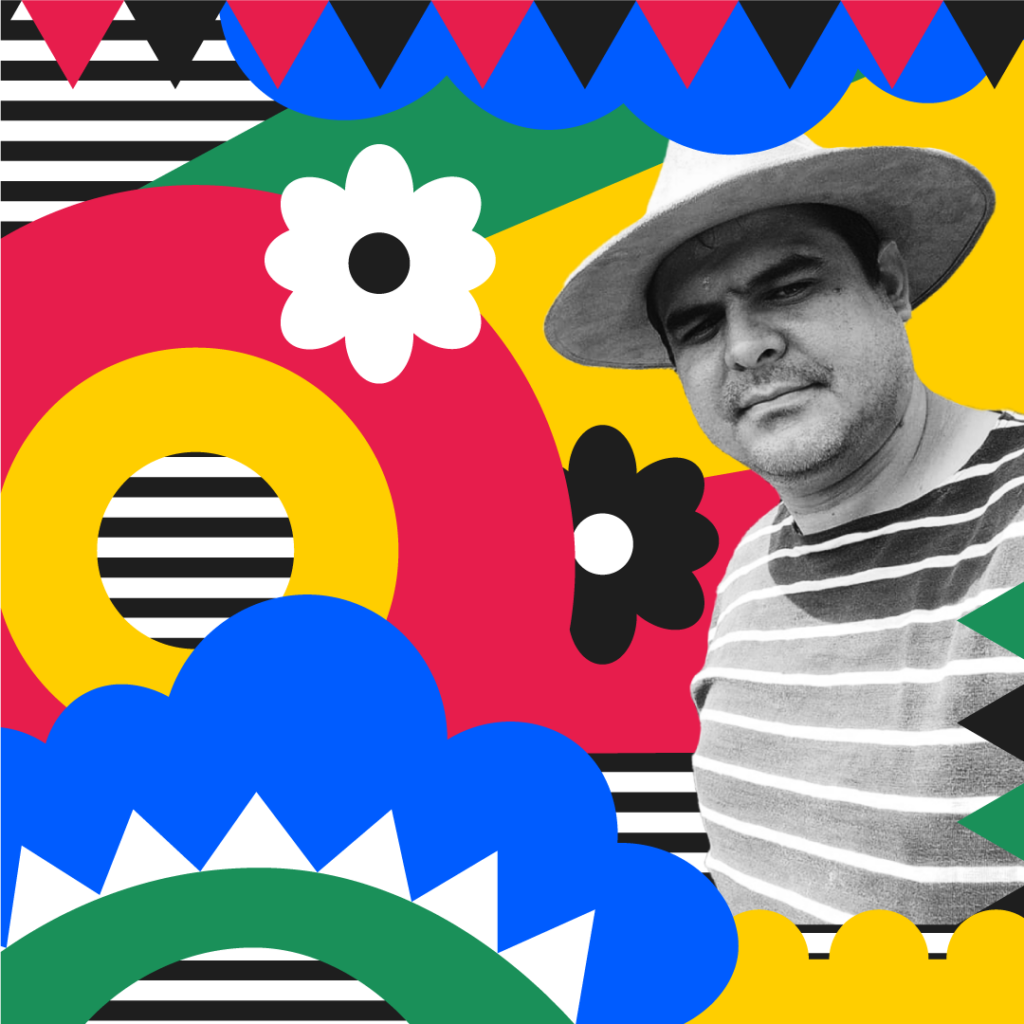
When Montilla and González started their coffee careers, Venezuela had less than ten specialty coffee shops. Now, the city of Caracas itself has more shops than there used to be in the whole nation, and shops are popping up all around the country. Seven years ago, Montilla could sell his coffee to maybe a single shop in Venezuela: now, he sells specialty-grade coffee to dozens of roasters and coffee shops in Venezuela.
Montilla recently received his Q Processing Certification but acknowledges that there’s still much to learn. “There is still so much to find out about coffee,” he says. “We still don’t know everything about coffee. [But Venezuelan coffee] has so much to highlight and to give to coffee lovers. We’re creating an identity of Venezuelan coffee through the varieties we’re working with. And bringing this identity to reality, not in terms of quantity, but quality, into Venezuelan coffee.”
Along with education, coffee events have raised awareness about specialty coffee. Venezuela hosted its first Aeropress Championship in 2016, a national competition where contestants are challenged to make the best cup of coffee using an Aeropress. Venezuela has also played host to events like the Caracas Quiere Café, a coffee exposition for industry insiders and coffee fans alike, and the Summit for Venezuelan Specialty Coffee (EICEV as it is known in Spanish), the first joint effort between the government and private companies to promote Venezuelan specialty coffee.
People in the global market are waiting for a different single-origin coffee. That’s an amazing opportunity to showcase Venezuelan coffee. Victor Montilla
While specialized coffee roasters and coffee shops aren’t abundant in the country, they’re becoming stronger, focusing on high-quality single-origin coffees. Coffee shops in Venezuela are still recovering from the effects of the COVID-19 pandemic, so growth has especially been spurred by events like the EICEV. “The drive to sell specialty coffee has existed for several years, but the EICEV had a true impact on coffee producers. Furthermore, the public learned what specialty coffee is and that we have it here,” says Montilla.
Venezuela’s global profile is also growing. González will be the first to represent the country in the World Barista Championships, and his goal is to showcase Venezuelan coffee’s unique attributes. González has a team of people behind him, including Montilla, who will supply beans for the competition.
Montilla expects international exposure to raise the bar and drive further improvements for Venezuelan specialty coffee. “I bet next year we’ll have more high-quality coffee and more people motivated to work in coffee production, taking care of their crops, the selection, and post-harvest processing. People will pay more attention to the details, such as the steps for cleaning coffee, taking brix readings, and deciding what processing to give to each coffee.”
“People in the global market are waiting for a different single-origin coffee,” says Montilla. “That’s an amazing opportunity to showcase Venezuelan coffee.”


